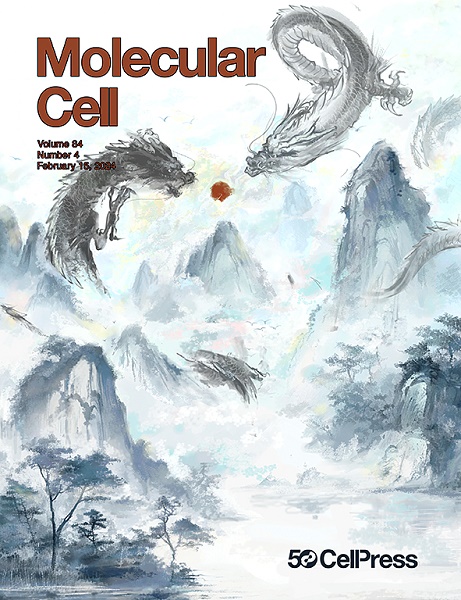Phages gain the upper hand in the metabolic arms race for NAD+
IF 16.6
1区 生物学
Q1 BIOCHEMISTRY & MOLECULAR BIOLOGY
引用次数: 0
Abstract
Bacteria often defend against phage infection by deploying NADase effectors to degrade cellular NAD+, thereby halting both bacterial growth and phage replication. In a recent article in Nature, Osterman et al.1 identify phage-encoded counterdefense pathways that reconstitute NAD+ during infection, enabling phages to combat multiple unrelated antiphage systems.噬菌体在NAD+的代谢军备竞赛中占据上风
细菌通常通过部署NADase效应物来降解细胞中的NAD+来防御噬菌体感染,从而阻止细菌生长和噬菌体复制。在《自然》杂志最近的一篇文章中,Osterman等人发现了噬菌体编码的反防御途径,该途径在感染期间重建NAD+,使噬菌体能够对抗多个不相关的抗菌体系统。
本文章由计算机程序翻译,如有差异,请以英文原文为准。
求助全文
约1分钟内获得全文
求助全文
来源期刊

Molecular Cell
生物-生化与分子生物学
CiteScore
26.00
自引率
3.80%
发文量
389
审稿时长
1 months
期刊介绍:
Molecular Cell is a companion to Cell, the leading journal of biology and the highest-impact journal in the world. Launched in December 1997 and published monthly. Molecular Cell is dedicated to publishing cutting-edge research in molecular biology, focusing on fundamental cellular processes. The journal encompasses a wide range of topics, including DNA replication, recombination, and repair; Chromatin biology and genome organization; Transcription; RNA processing and decay; Non-coding RNA function; Translation; Protein folding, modification, and quality control; Signal transduction pathways; Cell cycle and checkpoints; Cell death; Autophagy; Metabolism.
 求助内容:
求助内容: 应助结果提醒方式:
应助结果提醒方式:


